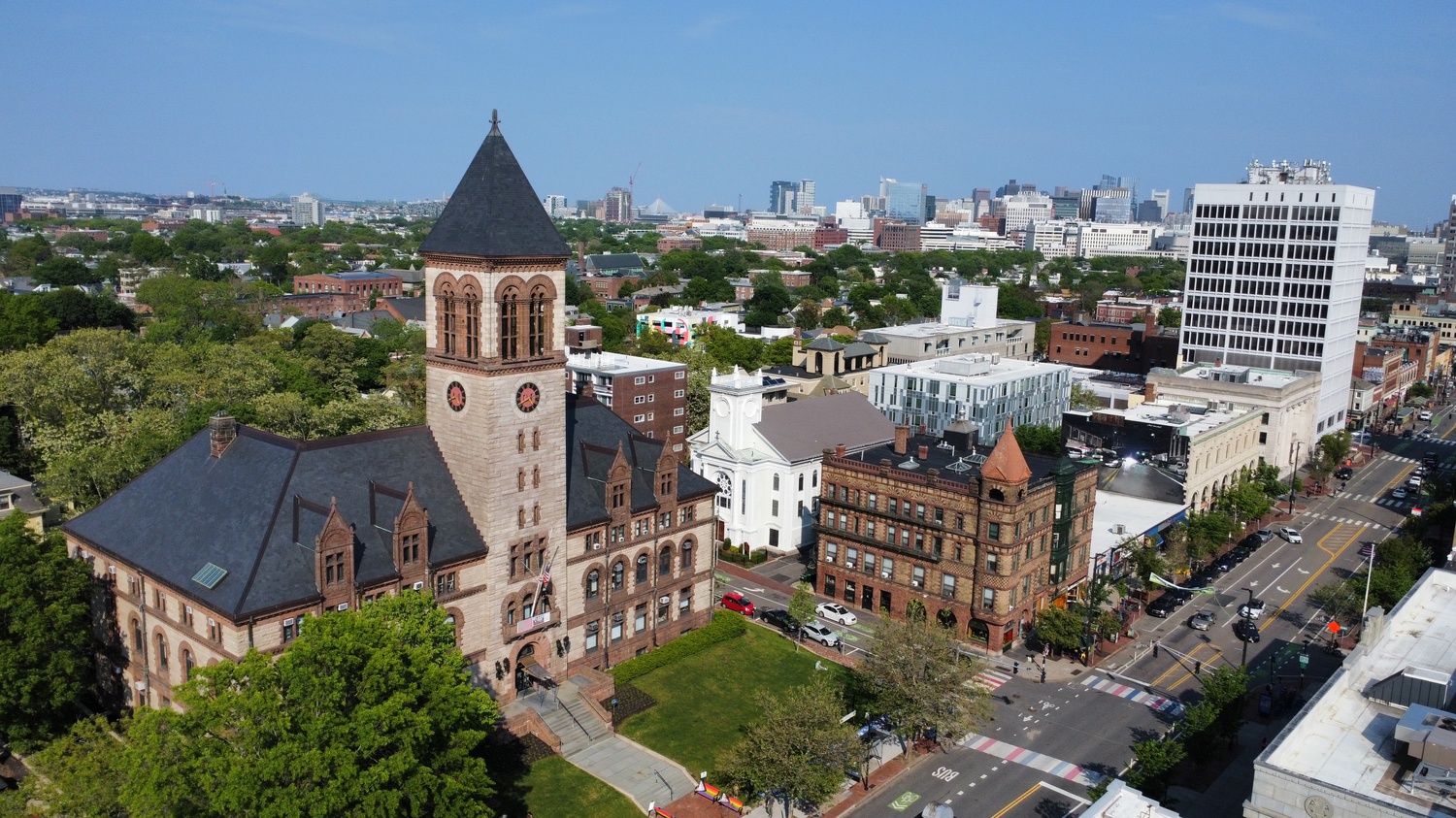
News
Cambridge Reelects Council Incumbents, Shifts Toward Center Following Progressive Departures

News
Cambridge Issues Vote of Confidence in School Committee, Reelects All Four Incumbents

News
Harvard Dean of Science Christopher Stubbs to Step Down at End of Academic Year

News
Harvard Business School Professor Francesca Gino’s Research Collaborators Launch ‘Many Co-Authors Project’ to Check Her Work

News
Harvard College to Discontinue ‘Linking’ for Blocking Groups in Housing Lottery
Street Signs of Change

Before Cambridge was home to Harvard, it was inhabited by the Massachusett Tribe. After centuries of colonization, forced removal, and dispossessions that persist to this day, the city of Cambridge has approved an initiative to install new street signs with road names translated into the Massachusett language.
This gesture is a small but vital step towards memorializing historical wrongs and celebrating Cambridge’s original dwellers through everyday education.
These signs — numbering roughly 80 in total from First Street through Eighth Street — will serve as a constant, quotidian reminder to all Cambridge residents that the city they inhabit was not always theirs, but rather land stolen from Indigenous people.
While other attempts at recognition of dispossession, including our own calls for a “museum of institutional failings” showcasing Harvard’s legacy of injustices, constitute admirable efforts to engage and educate the community about the ongoing legacy of settler colonialism, these intellectualized modes of recognition can only reach so far. Conversely, initiatives like this, which intertwine memorialization within the day-to-day fabric of our communities, are a sure step in the right direction, sparking productive conversation amongst every Cantabrigian who walks, bikes, or drives by one of these signs.
Proposed and developed by local Indigenous voices as part of a multi-year undertaking to recognize the city’s historical ties to Black and Indigenous communities, the initiative’s collaborative nature also sets it apart. Too often, recognition of past atrocities is bestowed upon communities without their input, overshadowing or flattening the very perspectives such projects aim to uplift. A project driven by Indigenous leaders with the pecuniary support of the city is a refreshing counter to this dynamic, and we’re excited to see it come to fruition.
Moreover, these signs challenge the narrative that we live in a post-Indigenous world by acknowledging and honoring the presence of Indigenous people on this land. Even today, Native people continue to face dire disenfranchisement at the hands of state legislatures. Compared to all other racial or ethnic populations domestically, Indigenous people suffer the highest poverty rates, almost twice the national average. Those who live on reservations often lack access to basic resources, such as clean water and electricity.
America’s responsibility to address colonial wrongs is ineffable and never ending. Powerful institutions like Harvard must do more to spotlight the egregious sins of our country — as well as their own.
No number of street signs can fully atone for our nation’s brutality, nor can mere signs ever truly redress the unthinkable harm unleashed on Indigenous people. But strides like this one still serve a meaningful purpose and should not be written off as purely performative. Symbolic gestures to redress historic wrongs — like denaming, or in this case, renaming — can send a loud signal about the ideals we espouse, even if they fail to completely redress the wrongs they aim to correct.
We hope this project will serve to encourage Cambridge residents to contend with their self-identity, community, and history writ large. We believe these signs hold the power to start all too-infrequent discussions about America’s founding injustice of settler colonialism and its undeniable, if often unspoken, embodiment in our surrounding environment. With this new project under way, an important initiative is coming soon to a street near you: the potential for tangible — and necessary — change.
This staff editorial solely represents the majority view of The Crimson Editorial Board. It is the product of discussions at regular Editorial Board meetings. In order to ensure the impartiality of our journalism, Crimson editors who choose to opine and vote at these meetings are not involved in the reporting of articles on similar topics.
Have a suggestion, question, or concern for The Crimson Editorial Board? Click here.
Want to keep up with breaking news? Subscribe to our email newsletter.
